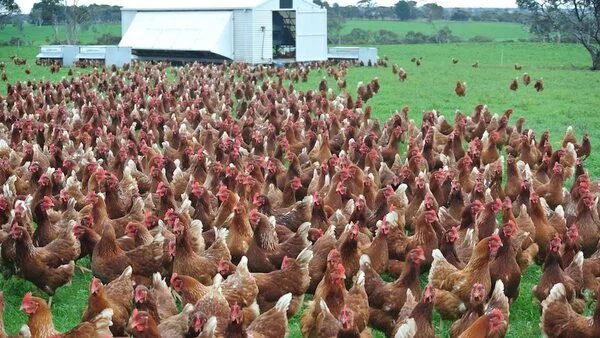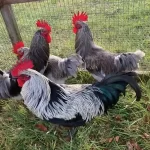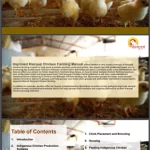Improved Kienyeji chicken farming is considered a very profitable venture due to several factors that make it attractive to both small and commercial farmers. Here are some reasons why advanced Kienyeji chicken farming stands out:
1. High demand for Kienyeji chicken products:
Taste and quality: Compared to commercial chickens, Kienyeji chicken is known for its superior taste and texture. This makes it highly sought after in local markets and among consumers who prefer organic and conventionally raised poultry.
Eggs: Eggs from Kienyeji chickens are also popular for their rich taste and health benefits.
2. Lower production costs:
Food: Kienyeji chickens are excellent foragers and can supplement their diet with natural nutrients, reducing the need for expensive commercial feed.
Housing: They can thrive in free-range or semi-intensive systems that require less investment in infrastructure compared to commercial poultry farming.
3. Disease resistance:
Improved kienyeji breeds are usually more resistant to local diseases and parasites than exotic breeds. This reduces veterinary costs and losses due to disease.
4. Sustainability and environmental impact:
Ecological: Kienyeji chicken farming is often more sustainable and has a lower environmental impact. Free-range systems encourage natural behavior and reduce dependence on intensive agricultural practices.
Biodiversity: Breeding local breeds helps preserve genetic diversity and promotes sustainable agriculture.
5. Economic Opportunities for Smallholder Farmers:
Income Generation: Improving Kienyeji Chicken farming is a viable source of income for smallholders and rural farmers, helping to improve livelihoods and reduce poverty.
Employment: The project will create jobs in the countryside, from raising and rearing chickens to marketing and sales.
6. Flexibility and adaptability:
Scalability: Kienyeji chicken farming can be scaled up or down depending on available resources and market demand. This is suitable for small backyard jobs as well as larger commercial enterprises.
Local adaptation: Improved Kienyeji breeds are well adapted to local environmental conditions, making them more manageable and less resource intensive.
7. Government and NGO Support:
Several government programs and NGOs support Kienyeji chicken farming through training, funding and access to improved breeds. This support helps farmers adopt best practices and increase productivity.
8. Health and Nutrition:
Growing awareness of health and nutrition has increased the demand for organic and wild poultry. Kienyeji chicken is often marketed as a healthier alternative to conventionally raised chickens, leading to higher prices.
9. Cultural preferences:
In many regions, Kienyeji chickens have cultural significance and are recommended for traditional foods and ceremonies. This cultural preference ensures constant demand for Kienyeji products.
10 Improved breeds:
The productivity of Kienyeji chickens has been improved through selective breeding and improved management practices. Improved breeds grow faster, lay more eggs and have better feed conversion compared to traditional domestic chickens.
Conclusion
In conclusion, improved Kienyeji chicken farming is profitable due to high demand for its products, lower production costs, disease resistance, sustainability and economic opportunities offered. With proper management and the availability of improved breeds, farmers can get a significant return on their investment, making it an attractive venture in the poultry industry..
BUY 1 GET 3
ORDER YOUR KIENYEJI CHICKEN FARMING MANUAL TODAY - GET KIENYEJI CHICKEN HOUSING MANUAL AND POULTRY FEED FORMULATION FOR FREE.KSH 800 ($6) KSH 400 ($3) ONLY


